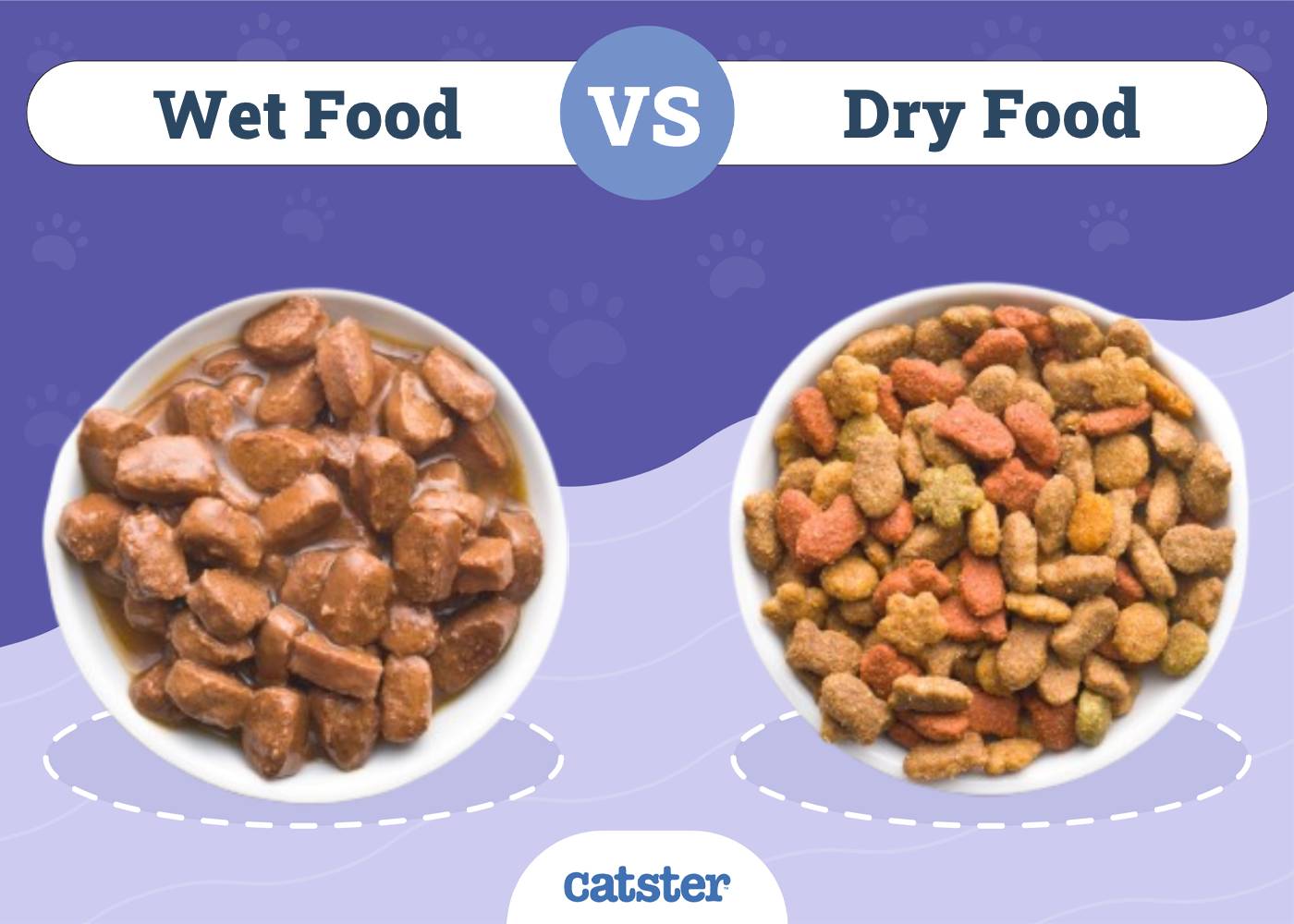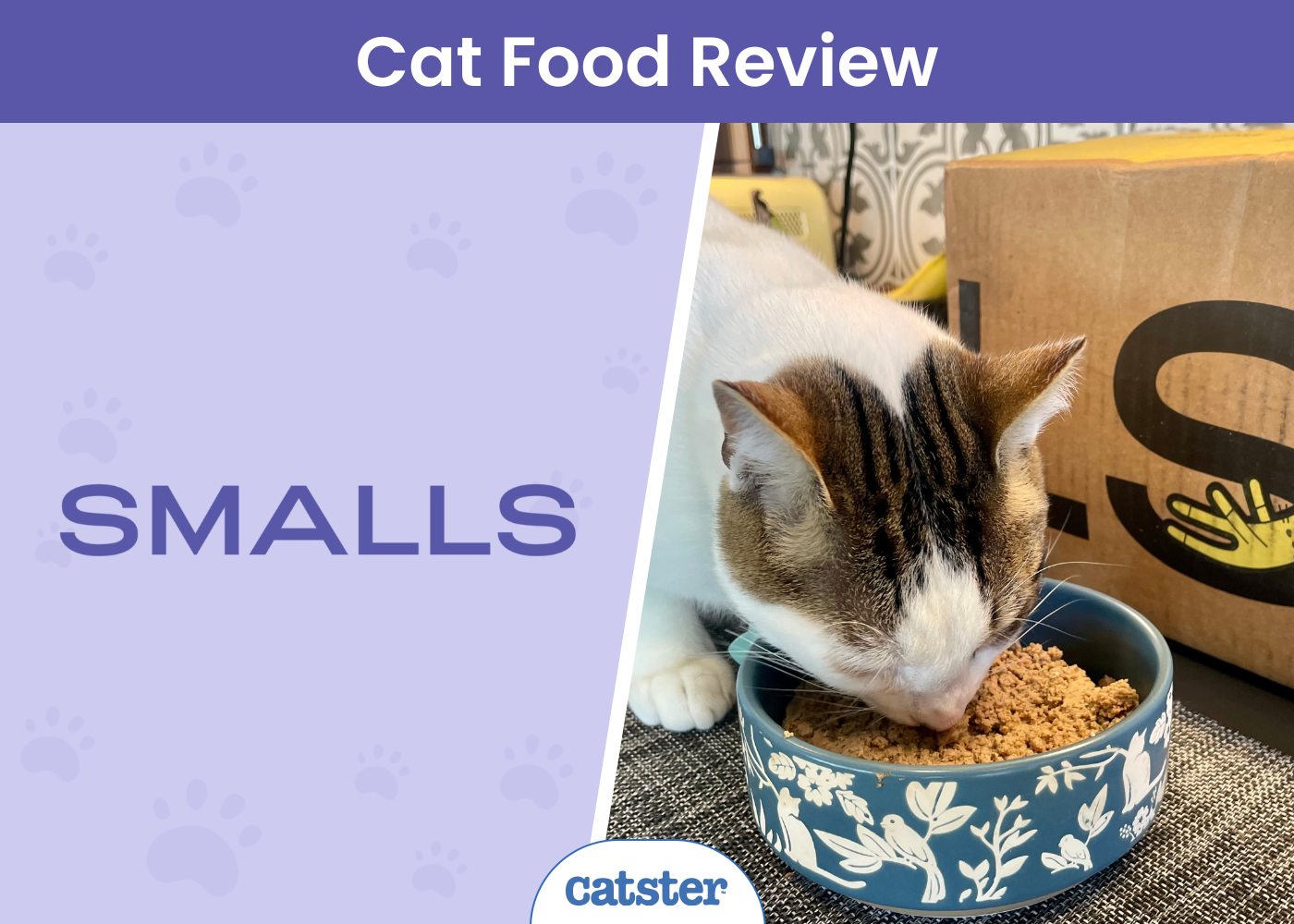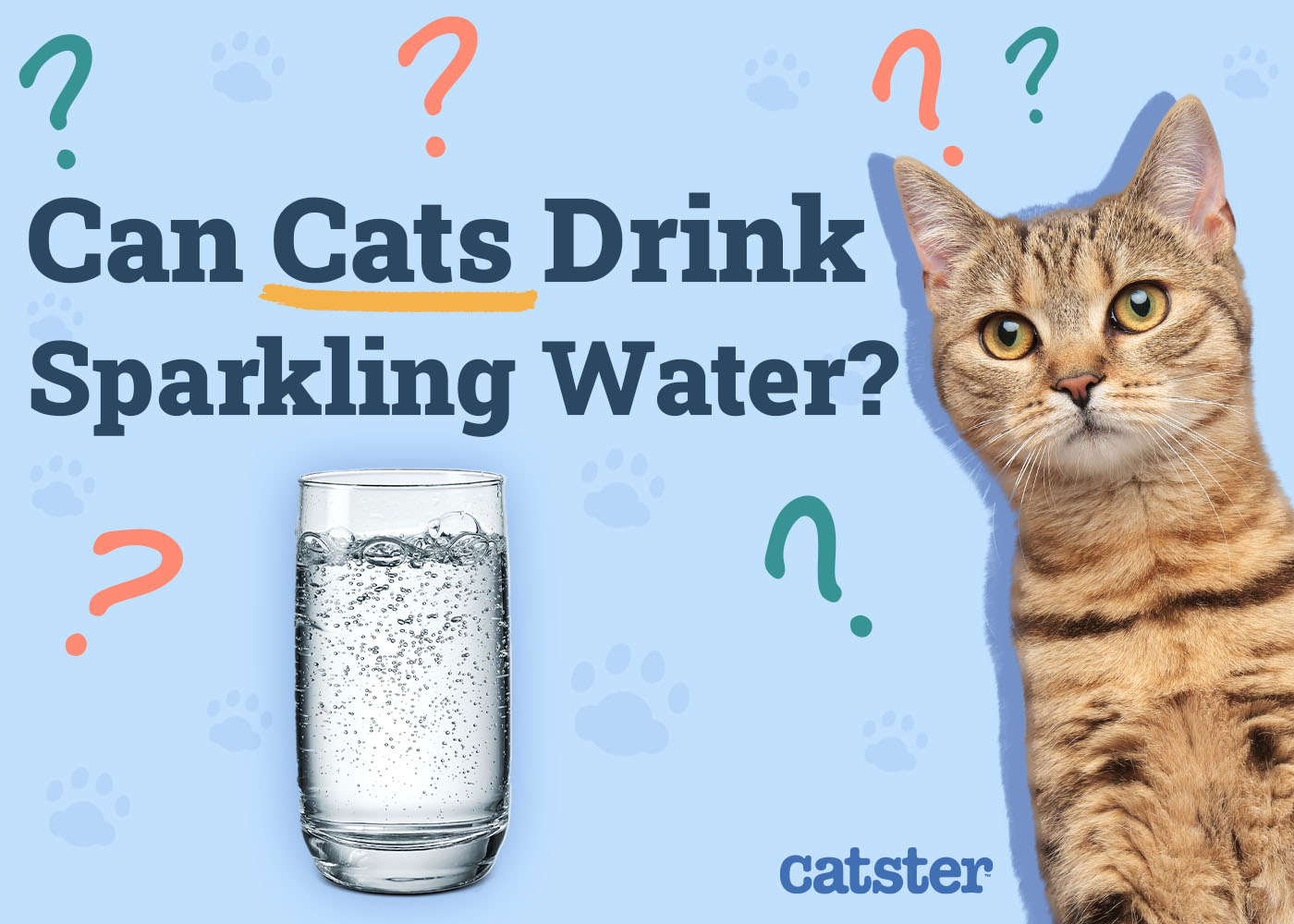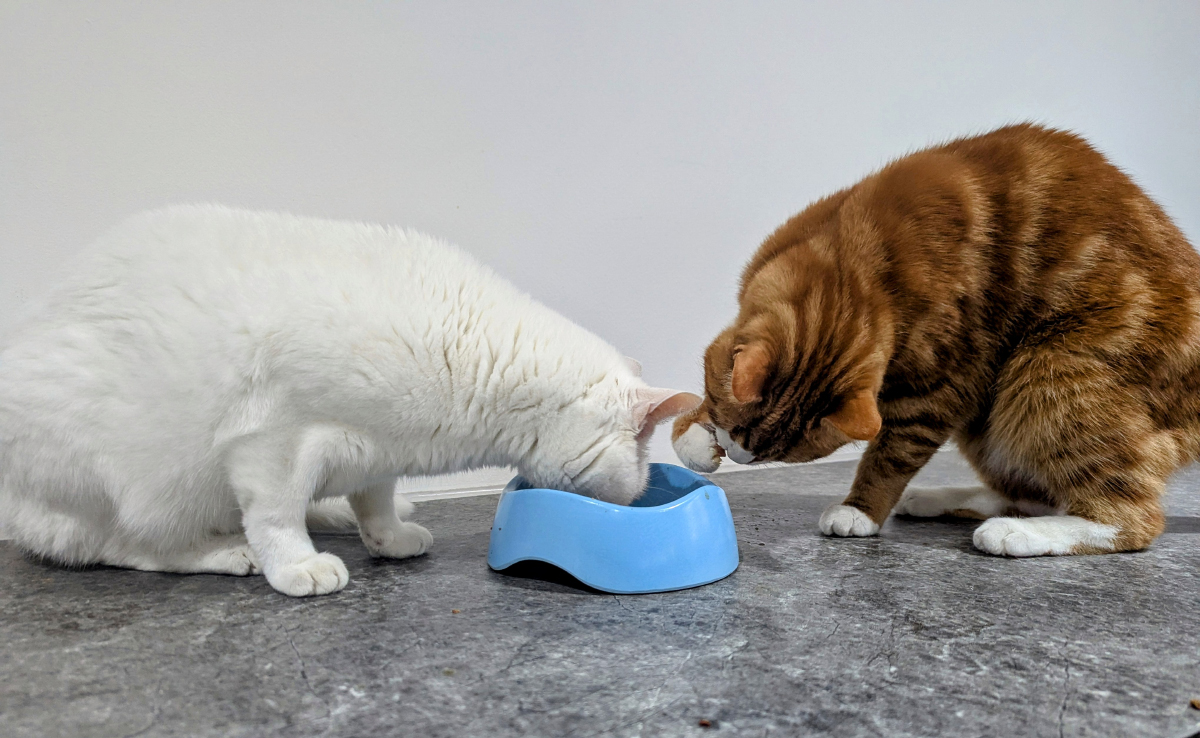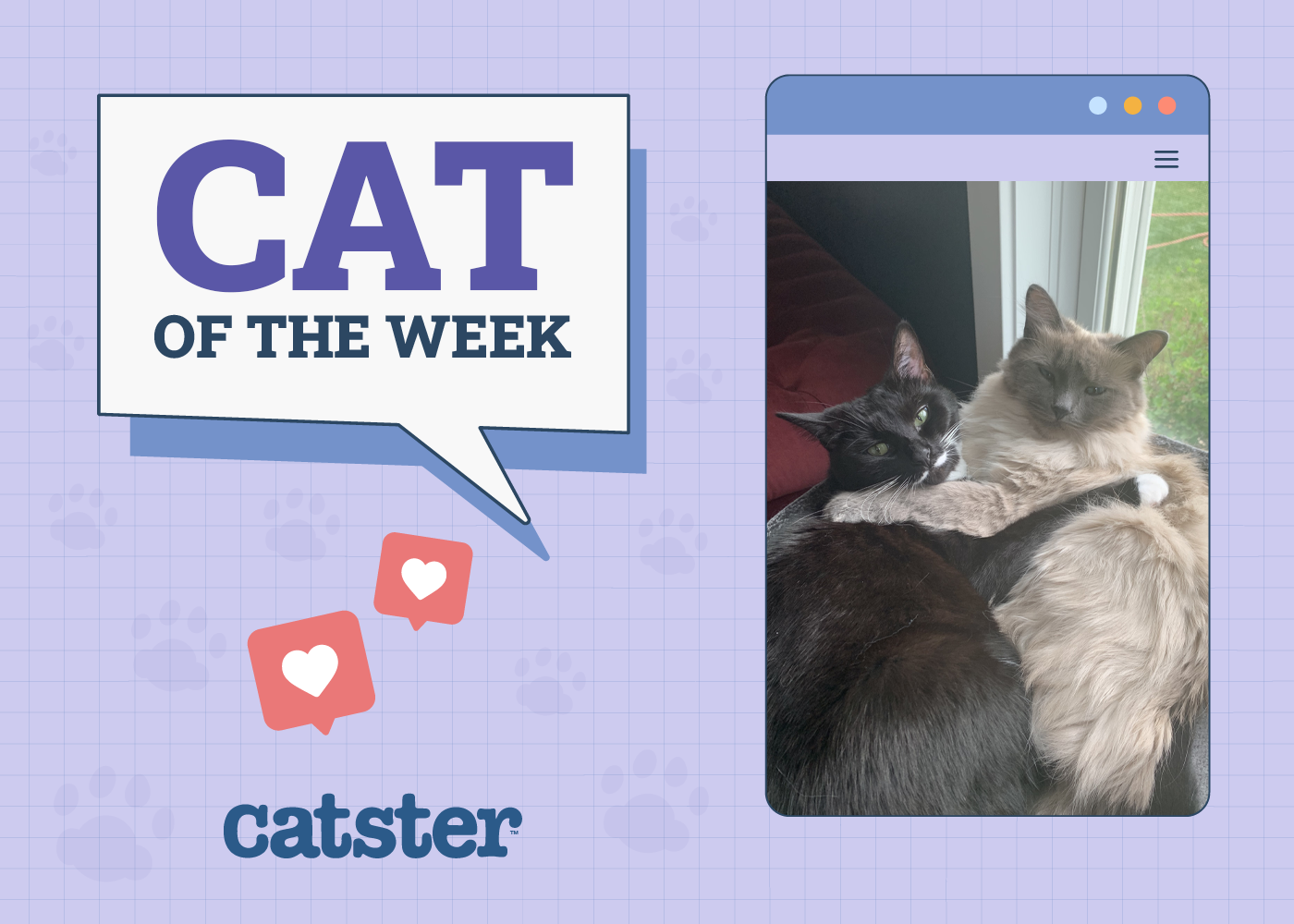Click to Skip Ahead
Have you ever walked into your rose garden and caught your cat nibbling on rose petals? Or perhaps you’ve found them snacking on your beautiful bouquet in your kitchen, and you’re worried about whether or not roses are safe for your cat?
Are roses safe for your cat to accidentally nibble on, or are they toxic for felines? The short answer is no, roses are not toxic for your cat. But still, cats shouldn’t be eating them, and there are a few warnings to be aware of.
When it comes to roses, for the purpose of this article we are referring to the Rosa species, which belong to the family of Rosaceae. There are many plants that have a rose in their name while not belonging to this family, and some of them are toxic to cats, so please refer to the ASPCA list of safe plants for cats if in any doubt.1

About Roses
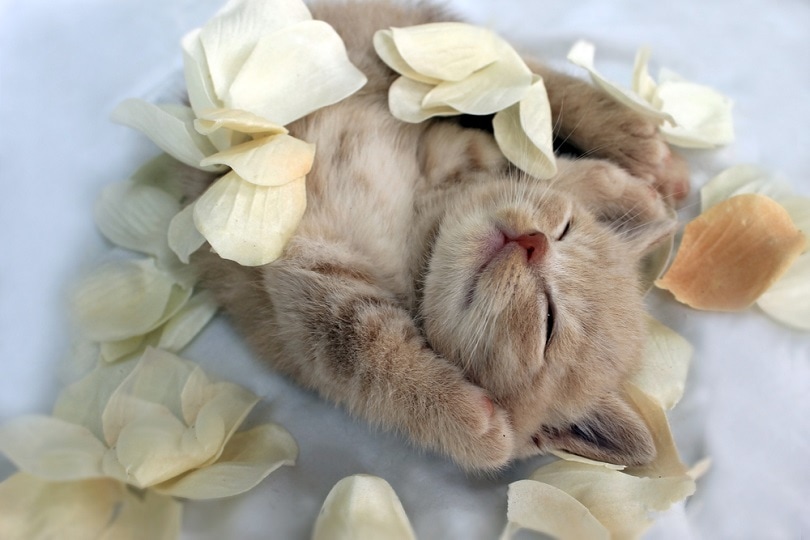
Roses have been around for at least 5,000 years and are believed to have been cultivated in the Mediterranean as well as Persia and China. They have been used in various applications, everything from perfumes to food and drink to home remedies.
They have also inspired literature (Shakespeare: “A rose by any other name would smell as sweet”), music (Poison: “Every Rose Has Its Thorn”), and poetry (“Roses are red, violets are blue”) and are symbols of love and passion.
Roses are also used extensively as a perfume and are commonly used in incense and potpourri. You can even use rose-scented shampoos and soaps so you can come out smelling like a rose!
Roses and Your Health
Roses are used in cuisine and are also known for natural home remedies. Rose hips are found under the rose petals and are a reddish-orange colored round bulb filled with seeds. They are very high in antioxidants and Vitamin C and are commonly made into rosehip tea and rose oil.
Rose water is made by using steam to distill rose petals and is used as a fragrance and applied topically or ingested as a tea.
- Improving heart health
- Reducing pain associated with arthritis
- Decreasing abdominal fat
- Anti-aging properties
- Soothing digestion issues
- Anti-anxiety and anti-depression properties
- Soothing headaches
- Anti-inflammatory properties
- Assisting in healing scars, cuts, and burns
- Helping to soothe skin irritation
- Preventing and treating infections (has antiseptic properties)
- Easing sore throats
However, most of these claimed benefits are anecdotal and poorly researched, while a small amount of evidence-based and critically evaluated studies have focused on analgesic and antidepressant properties. Roses may potentially have some benefits for us humans, but what about our cats?
Roses and Your Cat
While roses are not toxic for your cat, do they have any health benefits? While people can eat and drink water or tea made from roses, it’s important not to feed any to your cat. While they aren’t toxic, cats will not reap any benefits from them whatsoever, and too much could cause an upset stomach.
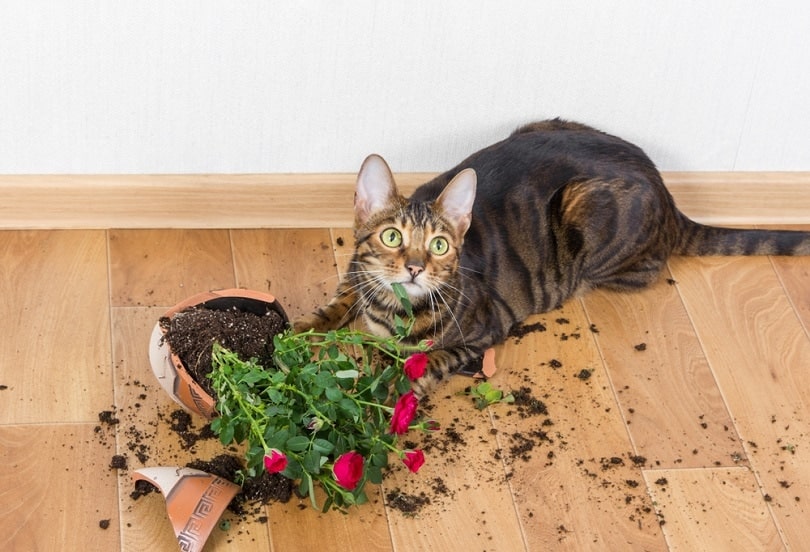

The Downside for Cats
So, we’ve established that roses are not toxic for your cat, but there are other downsides to consider. Not surprisingly, the stem of the rose with its thorns is not something your cat should eat. The thorns can scratch and injure your cat’s face, mouth, and paws. Another concern is if the roses have been treated with chemicals, such as various pesticides.
- Drooling
- Vomiting and diarrhea
- Loss of appetite
- Pawing at the mouth
- Abdominal pain
- Lethargy
- Tremors
- Seizures
See your vet if your cat displays any of these signs after eating some of your roses. Refrain from using any pesticides on roses and other plants in your garden, as your cat may easily get exposed. If that becomes the case, urgently call your vet and bring the package with you so your cat can be checked out as soon as possible, even if they are not showing any signs of toxicity.
If you need to speak with a vet but can't get to one, head over to PangoVet. It's an online service where you can talk to a vet online and get the personalized advice you need for your pet — all at an affordable price!

Toxic Flower Plants for Your Cat
There are also a number of flowers that have the name “rose” but are not actually a part of the family of the rose and are quite toxic for your cat.
We’ll have a brief look at these toxic “roses”:
Christmas Rose
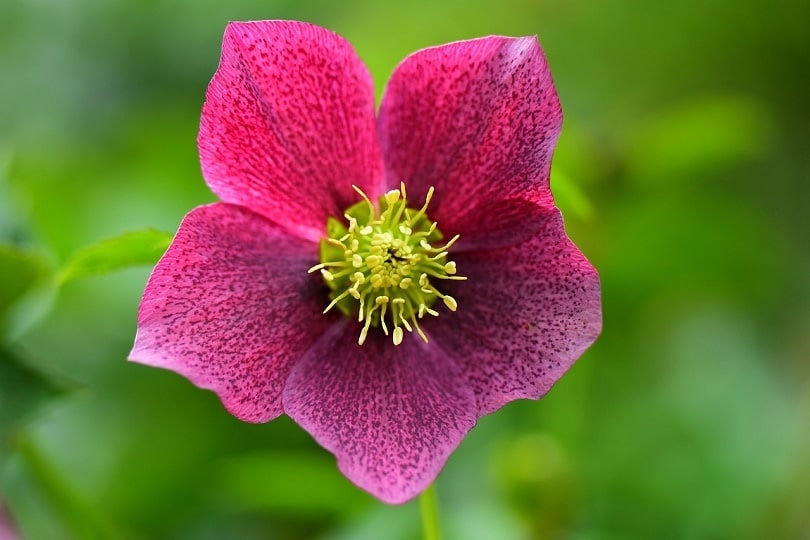
The Christmas rose (also called the Easter rose, scientific name Helleborus niger) is a perennial flower that blooms in winter and resembles the wild rose. It is a member of the buttercup family and is unrelated to the rose in any way.
Desert Rose
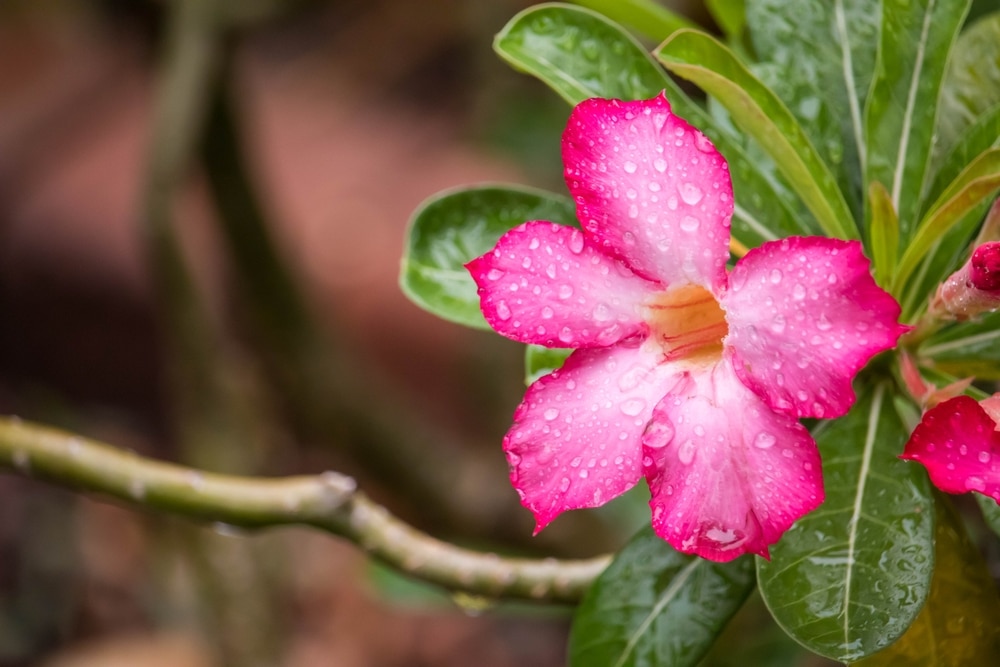
The Desert rose (scientific name Adenium obesum) is slow growing with a succulent stem and deep, vibrant pink colored flowers. They are native to Africa, Madagascar, and the Middle East.
Moss Rose
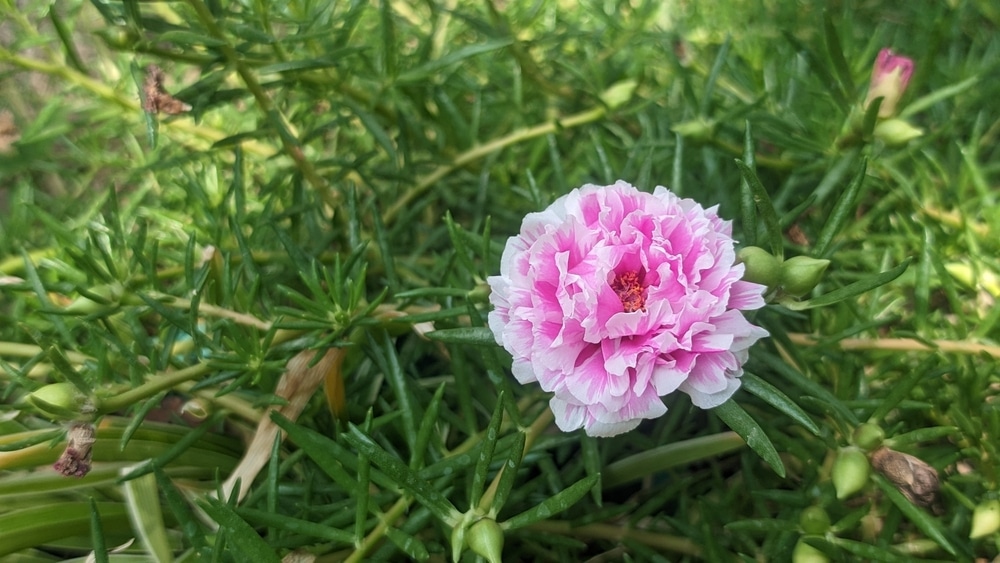
The Moss rose (scientific name Portulaca oleracea) is a flowering plant with succulent leaves that can withstand high temperatures and is native to Uruguay, Argentina, and Brazil. They resemble miniature, brightly colored roses.
Primrose
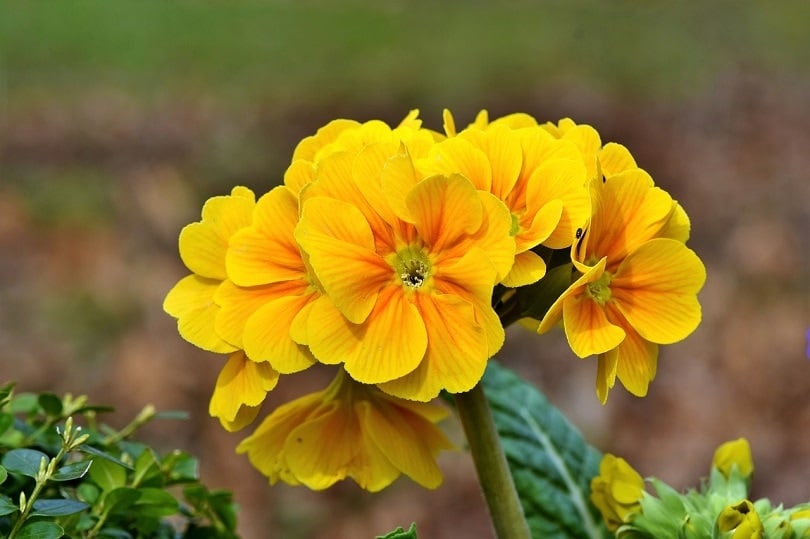
The primrose (scientific name Primula vulgaris) is a perennial that blooms large double flowers in bright pink to yellow, orange, white, and red and is commonly associated with cottage gardens.
Rosebay
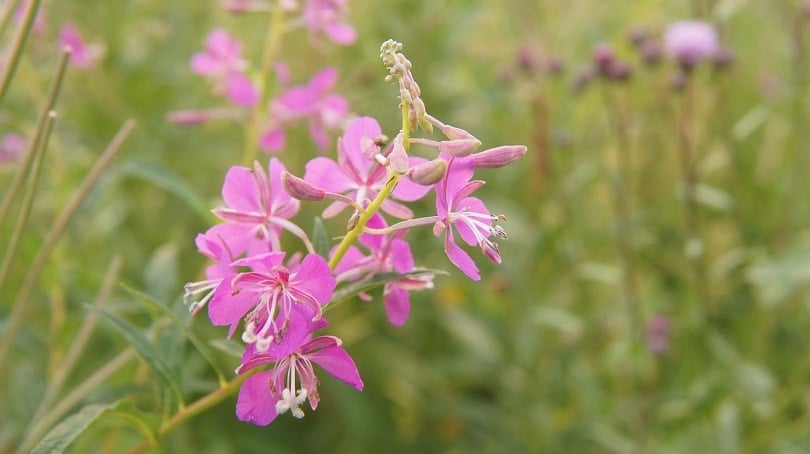
The rosebay (also called azalea) is a member of the rhododendron family and is an evergreen shrub with brightly colored flowers.

Signs of Toxicity
Depending on the type of poisonous plant and toxic substance responsible for the mechanism of action, the signs of toxicity in cats may be focused on the digestive tract, respiratory tract, kidneys, neurological system, and other organs.
- Vomiting and diarrhea
- Abdominal pain
- Difficulty breathing
- Excessive drinking and urinating
- Drooling or difficulty swallowing
- Slow, fast, or irregular heartbeat
- Tremors, seizures, coma
If your cat has eaten a plant that you know is toxic or you are unsure about their safety for cats, or they exhibit any of these or other clinical signs, visit your vet immediately. Be sure to bring the plant with you if you’re unsure what it is so your vet knows what to treat your cat for.
All of these so-called “roses,” alongside many other plants, are toxic for your pet, so be sure to keep your cat away from them. A complete list of plants that are non-toxic and toxic for pets is available at the ASPCA here.
Learning about what your cat can and cannot eat is a crucial part of keeping them happy and healthy! Choosing a bowl to serve cat-friendly foods in is another important decision pet owners face. Satisfy the specific needs of your cat with the innovative design of the Hepper NomNom Cat Bowl. Learn why it’s our (and our cats!) favorite food and water dish here. At Catster, we’ve admired Hepper for many years and decided to take a controlling ownership interest so that we could benefit from the outstanding designs of this cool cat company!

Conclusion – Cats & Rose Petals
While nibbling on a few rose petals shouldn’t harm your cat significantly, it’s probably best to keep them away to prevent stomach issues. If they have already nibbled at a rose, they’ll probably be fine, but keep an eye on them for the next several hours and speak to your vet if you’ve witnessed any signs of discomfort or a stomach upset.
Ensure that any roses you grow in your garden or are part of a bouquet in your household are not any of the toxic varieties mentioned in this article and, if they are on the list of safe plants, that they have not been treated with any pesticides or other chemicals. Do not keep any of the toxic and unsafe plants in your garden or home since keeping your beloved family member safe from harm is of the utmost importance, and even if kept somewhere out of their reach, the risk of exposure will still be there, and it’s just not worth it.
See also:
Featured Image Credit: Catster.com




